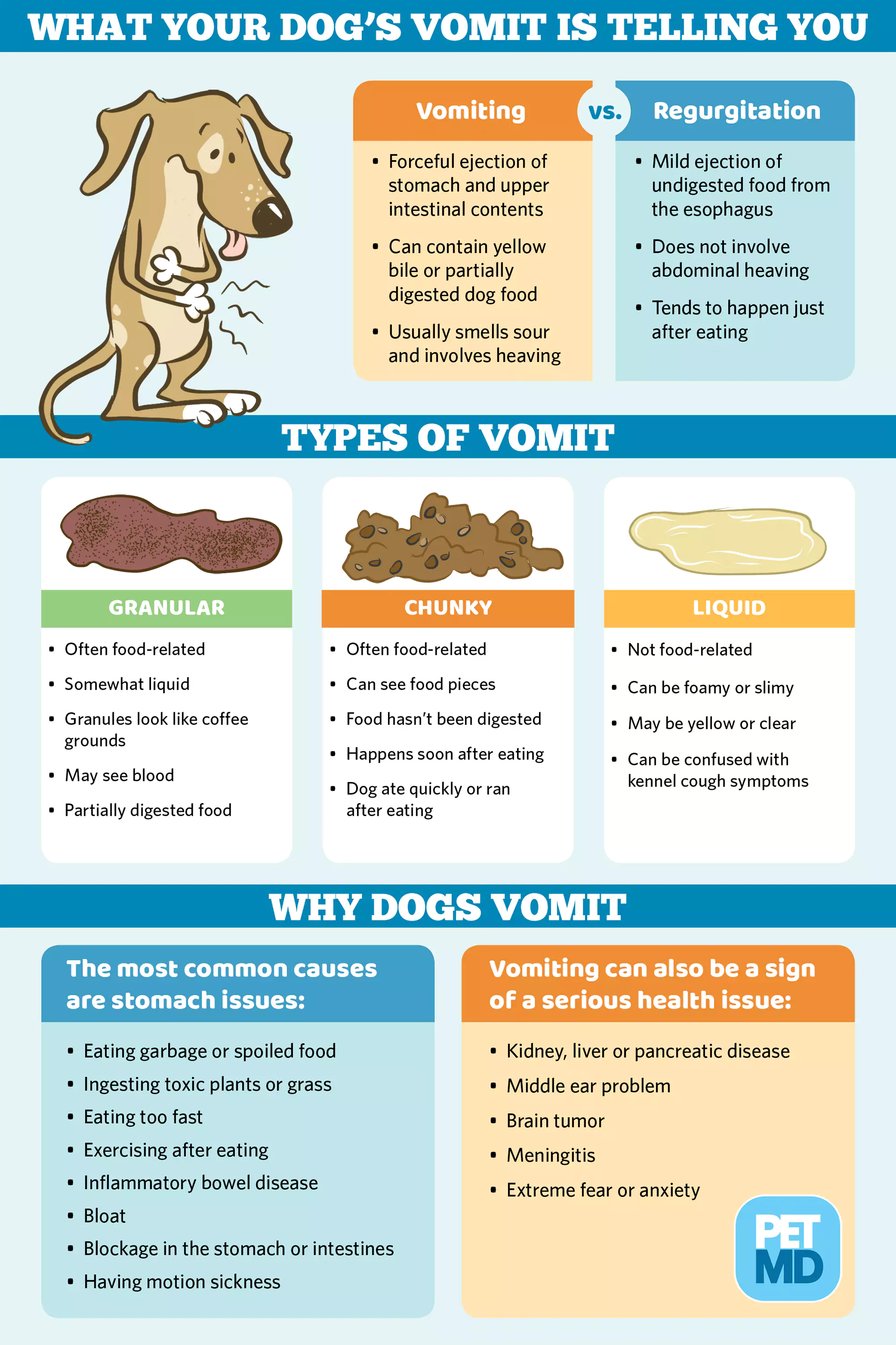Seeing your dog vomit after taking medication can be a worrying experience, prompting questions about the next steps. This scenario is not uncommon in veterinary medicine. Understanding the potential causes, associated risks, and the appropriate response is crucial for your pet’s health and well-being. This article will explore why this might happen, when to be concerned, and the correct actions to take.
Understanding Why Your Dog Vomited Post-Medication
Several factors can lead to a dog vomiting after receiving medication. The most frequent reasons include:
Gastric Irritation: Certain medications, particularly non-steroidal anti-inflammatory drugs (NSAIDs), antibiotics, and pain relievers, can irritate the stomach lining. This irritation is often exacerbated if the medication is administered on an empty stomach, potentially leading to nausea and subsequent vomiting.
Hypersensitivity or Allergic Reaction: While less common, vomiting can sometimes be an indicator of an allergic response. This reaction could be to the active pharmaceutical ingredient, inactive components (excipients), or preservatives within the medication’s formulation, whether it’s a tablet or a liquid.
Improper Administration: If medication is given too quickly, not diluted sufficiently when required, or administered with excessive force, it can cause the dog to gag or become stressed. This distress can easily trigger vomiting shortly after administration.
Stomach Contents: Administering medication when the stomach is either completely empty or overly full can also provoke vomiting. The timing of medication is critical for some drugs, as it affects their absorption and efficacy.
When Vomiting Becomes a Cause for Concern
It’s important to monitor your dog closely and be aware of specific signs that indicate a more serious issue. You should contact your veterinarian immediately if:
- Your dog vomits every time they receive medication.
- Vomiting is accompanied by other symptoms such as diarrhea, lethargy, or fever.
- Your dog exhibits excessive drooling, tremors, or facial swelling.
- Vomiting occurs several hours after administration, suggesting it may not be a direct result of the drug itself but a delayed reaction or unrelated issue.
- The pet is undergoing treatment for a serious condition (e.g., infection, severe pain, post-surgical recovery), as failing to absorb medication could impede healing and recovery.
Steps to Take If Your Dog Vomits After Medication
If your dog vomits after taking medication, follow these guidelines:
Note the Timing: Carefully record the time elapsed between medication administration and the onset of vomiting. If vomiting occurs within 30 minutes, it’s likely the medication was not absorbed. Inform your veterinarian, as they might advise repeating the dose. Never administer a second dose without explicit veterinary instruction.
Inspect the Vomit: Check if the intact pill or capsule is visible in the vomit. If so, it confirms the medication was not absorbed. Your vet may then guide you on how to re-administer the dose.
Avoid Immediate Re-dosing: Giving the medication again too soon can worsen gastric irritation. Always wait for professional advice before re-administering.
Consider Stomach Protection: For some medications, giving them with food can help minimize gastric discomfort. However, this should only be done if your veterinarian approves, as food can interfere with the absorption of certain drugs.
Discuss Alternatives with Your Vet: If vomiting persists, your veterinarian may suggest alternative medications, different formulations (e.g., switching from pills to liquids or injections), or the addition of gastroprotectant medications to shield the stomach.
Tips to Prevent Vomiting After Medication
Implementing a few strategies can help reduce the likelihood of your dog vomiting after medication:
- Adhere Strictly to Dosing Instructions: Always follow your veterinarian’s prescribed dosage and frequency.
- Clarify Food Administration: Ask your vet whether the medication should be given with or without food.
- Use Tasty Treats: If permitted by your vet, concealing the pill in a small, palatable treat can make the experience more pleasant for your dog.
- Ensure Calmness: Encourage your dog to remain calm and still for a short period after administering the medication.
- Gentle Administration: Avoid forceful administration. Stress and anxiety can also contribute to vomiting.
Conclusion
While vomiting after medication can sometimes signal an adverse reaction, it is most often attributable to gastric irritation or issues with administration. The most critical actions are to remain calm, closely observe your dog’s behavior, and consult your veterinarian before altering or stopping any prescribed medication. This ensures your beloved pet’s treatment remains both safe and effective.
References
Papich, M. G. (2021). Saunders Handbook of Veterinary Drugs: Small and Large Animal. Elsevier.
Plumb, D. C. (2018). Plumb’s Veterinary Drug Handbook. Wiley-Blackwell.

